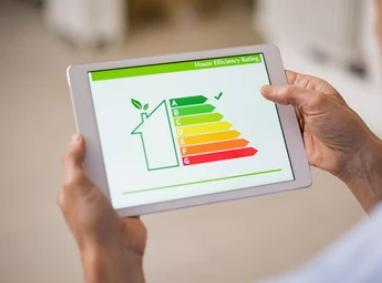
- EIB and Italgas will support energy efficiency projects in residential buildings across Italy.
- The initiatives will help to improve energy efficiency in approximately 4 500 homes and create an estimated 1 500 jobs during the implementation phase of the project.
- The operation supports the Renovation Wave and European Green Deal, as well as Italy's national energy and climate plan.
The European Investment Bank (EIB) has granted a €150 million framework loan to Italgas for initiatives to be carried out in Italy via Seaside, the group's energy service company. The main goal of the financing is to reduce environmental pollution with investments aiming to improve the energy efficiency of residential buildings throughout the country over the next three years.
This climate action framework loan sees the EIB partnering with the Italgas Group once again, with the activation of the Bank's investments in energy sector companies able to contribute to the net-zero environmental transition.
The financing is intended to help implement energy efficiency initiatives across Italy — mainly regarding the redevelopment of residential buildings — with the goal of cutting atmospheric pollution and delivering health benefits in line with the European Green Deal and the Renovation Wave, which aims to double the energy renovation rate for European buildings by 2030. The EIB-financed initiatives will help to improve energy efficiency in approximately 4 500 homes and create an estimated 1 500 new jobs during the implementation phase of the project.
The framework loan structure of the agreement includes mechanisms for allocating and disbursing funds to support the implementation of a wide range of small and medium-sized projects, offering particularly competitive terms and conditions.
“Over 85% of Italian residential buildings are energy class D or below and need major investment. Projects like the one signed with Italgas today are key not only to reducing dependence on energy imports from third countries, but also to cutting energy use and therefore the bills of people in Italy,” said EIB Vice-President Gelsomina Vigliotti.
“The best energy is the energy we don't waste,” said Italgas Chief Executive Officer Paolo Gallo. “This EIB financing will enable us to further strengthen our commitment to energy efficiency and the environmental transition, in line with the goals of the Italgas 2022-2028 strategic plan. Via our energy service company Seaside and technologies developed in-house, we offer the market and community cutting-edge solutions actively contributing to the achievement of the climate objectives of Italy and the European Union.”
Seaside is an Italgas Group company working in the energy efficiency of homes, businesses and public administrations sector. It contributes to achieving national energy efficiency targets and decarbonising consumption with its proprietary technologies.
In addition to consolidating the excellent partnership between the EIB and Italgas, the operation will further optimise the Italgas Group’s financial structure, both by cutting funding costs and by extending average debt maturity. This will support the major investment programme in the company's 2022-2028 strategic plan.
Background information
The European Investment Bank (EIB) finances projects in four priority areas: infrastructure, innovation, climate and environment, and small and medium-sized enterprises (SMEs). Between 2019 and 2021, the EIB Group provided more than €36 billion in financing for projects in Italy.
Italgas is Italy’s top gas distributor and the third-largest in Europe. It manages an over 75 000 km distribution network through which it has distributed approximately 9 billion m3 of gas to 7.8 million users in the last year. The group holds 1 899 concessions, with a historical presence in the country's major cities including Turin, Venice, Florence and Rome. It also operates in Greece through its subsidiary Depa Infrastructure. In recent years Italgas has focused on expanding its footprint in the energy efficiency and innovation technology sectors.